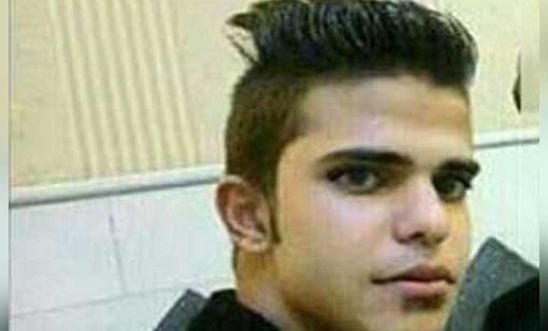
Press releases
Iranian authorities urged to halt execution of 17-year-old boy later this week

If execution of Amirhossein Pourjafar goes ahead it will be the fifth of a juvenile offender this year alone
Pourjafar is one of more than 90 people on death row for crimes committed as children
‘The authorities’ rush to send a child to the gallows in order to placate public anger is short-sighted and misguided’ - Magdalena Mughrabi
The Iranian authorities must stop the execution of a 17-year-old boy who is scheduled to be executed later this week.
Amirhossein Pourjafar is scheduled to be executed in a Tehran prison on Thursday after being convicted of the murder and rape of a seven-year-old girl, Setayesh Ghoreyshi, from Iran’s Afghan community. Amnesty is calling for the death sentence to be commuted to imprisonment.
The execution was scheduled two months after the head of Iran’s judiciary, Ayatollah Sadeq Larijani, repeated Iran’s untruthful claims that it does not execute minors. In reality, Amnesty has recorded the execution of 85 juvenile offenders in Iran during 2005-17, including four in 2015, two in 2016, and four so far this year. Amnesty has also identified 92 individuals who are currently on death row for crimes committed when they were children.
Pourjafar was sentenced to death in September 2016 after a Tehran court said he had already reached “mental maturity” at the time of the crime, and understood the nature and consequences of his actions. In reaching its conclusion, the court cited opinions from Iran’s state forensic institute attesting to Pourjafar’s “mental sanity” as well as evidence they say pointed to his efforts to conceal the crime. The court claimed its reasoning was in line with the UN Convention on the Rights of the Child, to which Iran is a state party. However, the convention has an absolute prohibition on the use of the death penalty for crimes committed by people younger than 18. It is a well-established principle of juvenile justice that under-18s are categorically less mature and culpable, and should not face the same penalties as adults.
In September 2016, a court in Tehran handed Pourjafar two death sentences, one for murder in accordance with the Islamic principle of “retribution-in-kind” and another for rape. He was also sentenced to 74 lashes for mutilating the corpse. The Supreme Court upheld both death sentences in January. In its final verdict the court said the death sentence against Pourjafar was issued after taking into account “societal expectations and public opinion”.
Magdalena Mughrabi, at Amnesty International’s Middle East and North Africa Deputy Director, said:
“There is no question that this was a horrific crime and the perpetrator should be held accountable.
“Amnesty International supports the demands for justice voiced by Setayesh’s bereaved family and the wider Afghan community in Iran, but executing a 17-year-old boy is not justice.
“The use of the death penalty against people convicted of crimes committed while they were under 18 is absolutely prohibited by international human rights law. If Iran goes ahead with the execution this week it will be another appalling breach of its international obligations.
“The authorities’ rush to send a child to the gallows in order to placate public anger is short-sighted and misguided. The death penalty is a cruel, inhuman and irreversible punishment and there is no evidence that it has a greater deterrent effect than imprisonment. Using it as a means to exact revenge only compounds its brutal effects on society.
“Instead of resorting to case-by-case ‘maturity’ assessments, which are by their very nature flawed and arbitrary, the Iranian authorities must comply with their international obligations toward children and end the use of the death penalty against all juvenile offenders immediately.”